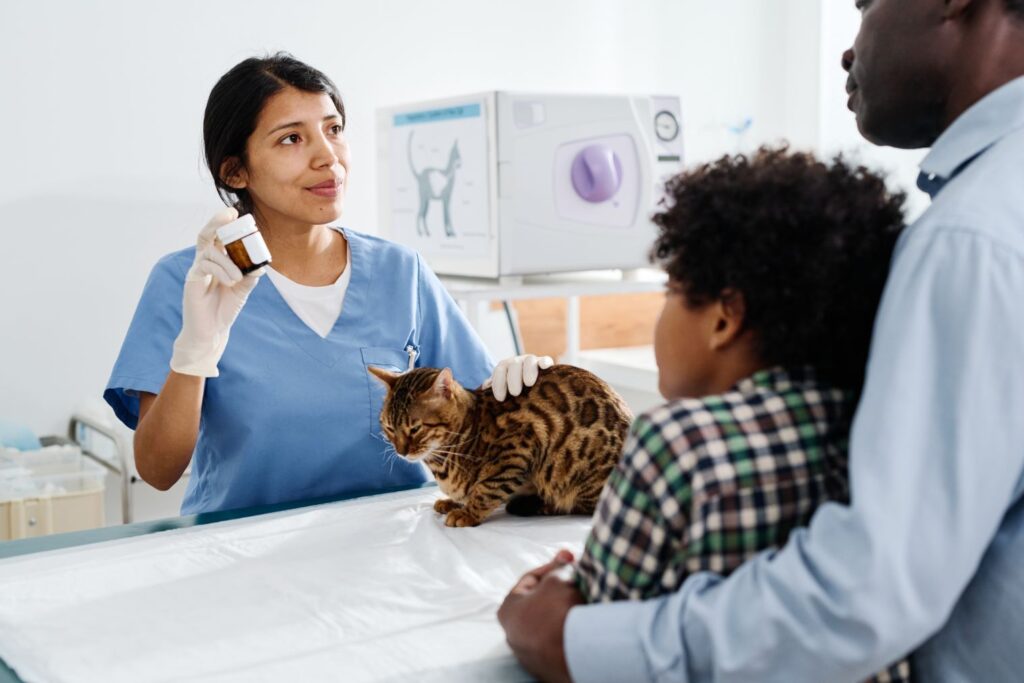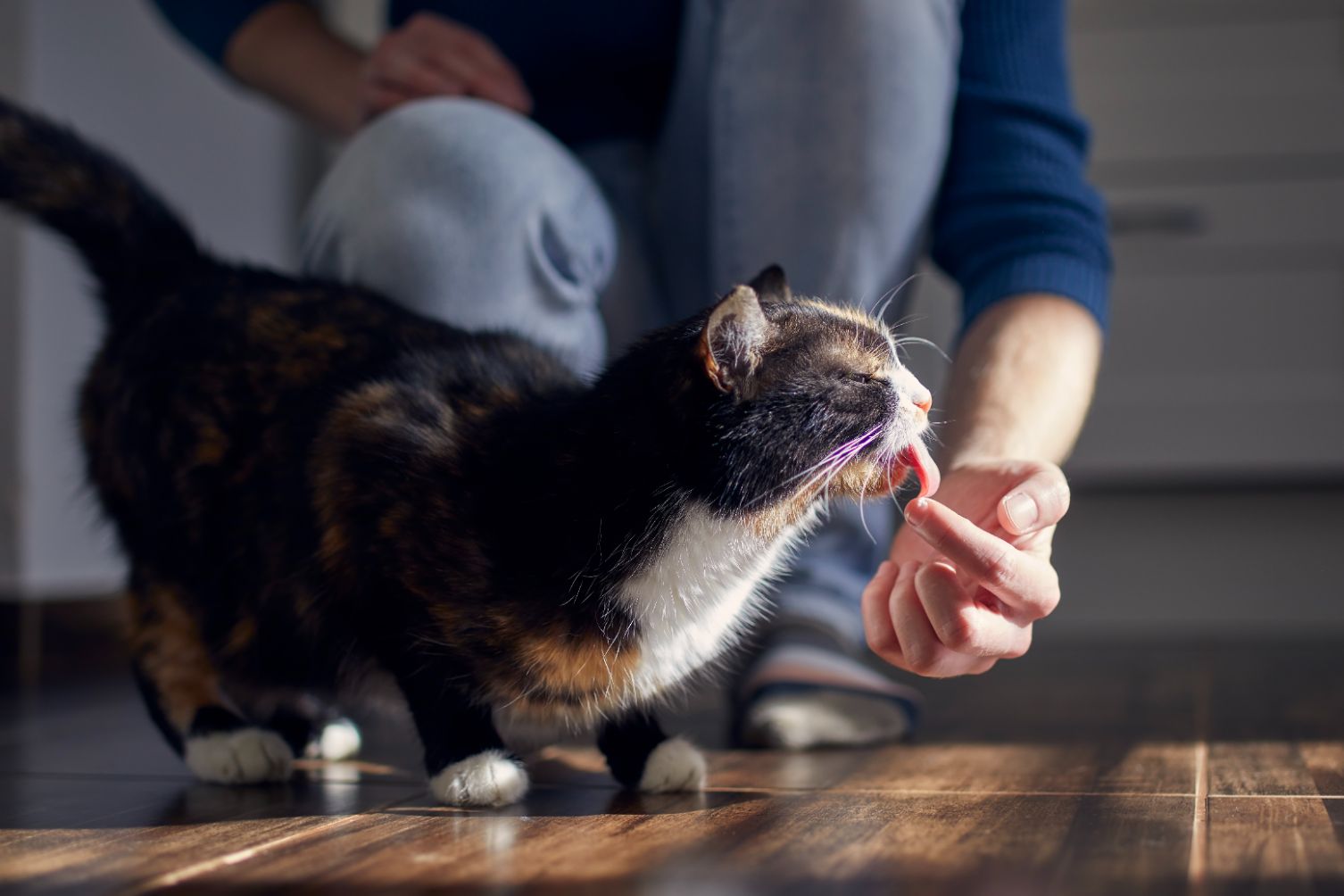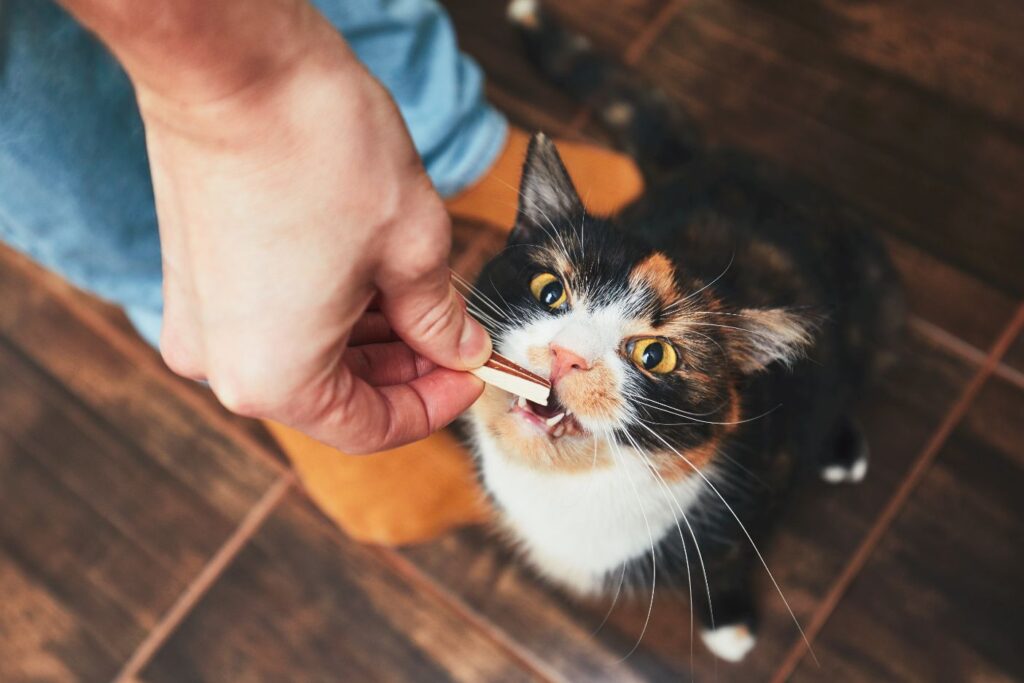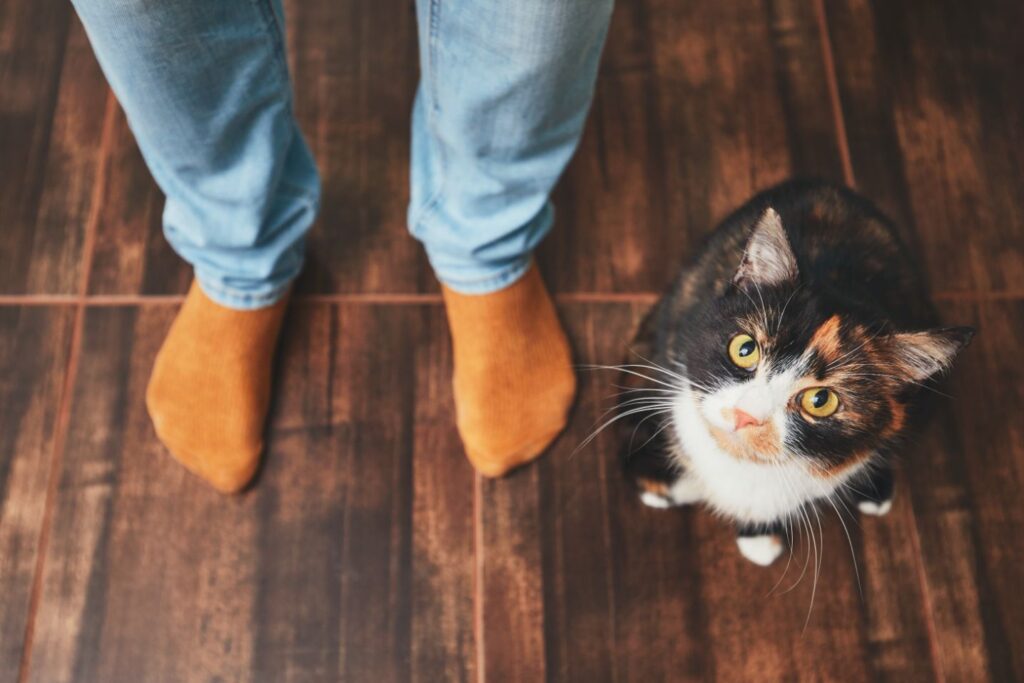Table of Contents
Butter is one of the most common dairy products. It’s also among the most versatile, which explains its wide application in a variety of cuisines.
But while butter is largely considered safe and even potentially beneficial to humans, this product shouldn’t be fed to cats. And there are plenty of reasons why, as you’re about to find out.
Why Is Butter Bad For Cats?
The biggest concern with butter for cats is its high fat content.
Cats require a considerable amount of fat in their diets. It aids several crucial functions, including energy production and food metabolism.
However, a cat’s diet should comprise over 80% protein and less than 10% fat. And that’s precisely what makes sharing fat-laden foods like butter with cats a terrible idea.

Besides irritating your cat’s digestive system, butter may also predispose him to obesity and overweight. The term ‘fat cat’ may be considered edifying in certain scenarios. But not when discussing a cat’s health.
Long-term exposure to butter could trigger even more severe medical complications in cats, including diabetes and heart disease. Worse yet, butter might aggravate certain preexisting conditions like pancreatitis and inflammatory bowel disease (IBD).
The following are other potential adverse effects of butter on cats;
1. Sodium-ion Poisoning
Sodium-ion poisoning is a medical condition that affect a cat’s kidneys. It results from ingesting excessive amounts of salt, which happens to be a common ingredient in most processed butters.
Sodium-ion poisoning can present several early warning symptoms, including increased water drive, frequent urination, and inappetence. Without timely interventions, your cat could develop other severe symptoms, such as acute dehydration and seizures.
2. Type-2 Diabetes and Tooth Decay
While most processed butters aren’t typically flavored, some manufacturers may experiment with artificial sweeteners. These compounds could also harm your cat in various ways.
Sugar is probably the most common sweetener you’re likely to encounter in certain butter products, and one of the very compounds that cats shouldn’t have.
Sugar is a major risk factor for type-2 diabetes. Excess sugar consumption might also lead to tooth decay and other dental issues.
And much like fat, sugar can easily irritate your cat’s tummy. That’s especially considering that cats do not require carbohydrates in their diets.
3. Lactose Intolerance
Butter contains lactose, a simple natural sugar present in all dairy products.
Sadly, cats tend to be lactose intolerant. So, that’s another reason to keep butter out of your kitto’s reach.
Lactose intolerance results from the inability to break down lactose in the body. That inability comes from the absence or inadequate amount of lactase, an enzyme that digests this simple sugar.
But if cats cannot process dairy products, how come kittens can safely consume milk?
The answer lies in the production of the enzyme lactase. All cats are born with the ability to secrete lactase. However, they lose that ability once they’re weaned. That explains why kittens can safely consume dairy milk while the contrary is true for adult cats.
Now, you may also wonder – since kittens aren’t generally lactose intolerant, can they have butter?
Absolutely not. As we’ve just observed, butter still contains several ingredients that might prove harmful to cats in general.
Can Butter Have Any Benefits For Cats?
Butter is rich in essential vitamins, including vitamins A, B-12, and D. The product also provides significant amounts of protein and calcium. All these nutrients might be useful to cats.
However, the potential risks of butter for cats tend to outweigh the benefits. Therefore, it’s safer to consider alternative healthier supplements than subject your feline companion to the adverse effects associated with butter consumption.
If you cannot resist the urge to share butter with your cat, be sure to only serve the product as a treat.
For instance, you can throw a half teaspoon of butter to reward the cat for good behavior. You could also use butter to hide medicine, especially when administering the drug to skittish felines. Whatever you do, note that butter should never feature regularly in your cat’s diet.
Are All Butters Harmful to Cats?
All dairy products contain decent amounts of lactose. Therefore, any butter made from animal milk is potentially harmful to cats. That’s regardless of whether it comes from the milk of common livestock like cows or wild animals like yaks.
The only type of butter you might consider sharing with your cat is plant-based butter.
Also known as vegan butter, plant-based butter is a nondairy butter substitute usually made from plant oils. Common oils used in the manufacture of vegan butter include almond oil, coconut oil, olive oil, avocado oil, and palm kernel oil.
Not only is plant-based butter lactose-free. It also tends to be low in dangerous fat, which makes it all the more recommended for cats.
Just ensure the butter is free from salt, artificial sweeteners, spices, and other common ingredients considered harmful to cats. Most importantly, serve the butter to your feline friend only as an occasional snack.
Wrap Up
Butter may be yummy and nutritious for humans. However, this dairy product can seriously harm your cat.
Since cats are likely to be drawn to butter due to its texture, the best way to minimize negative reactions to the product is to keep it out of your cat’s reach. And if you ever suspect that your kitto has eaten butter behind your back, arrange medical checkups immediately.



